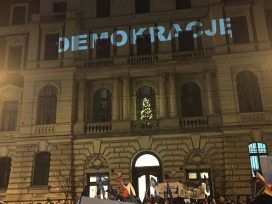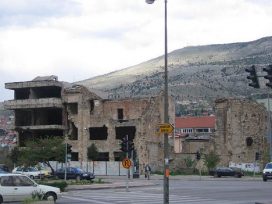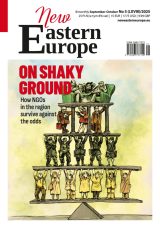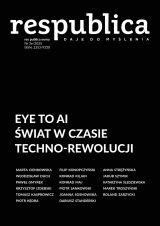Wojciech Przybylski
Editor-in-chief of Visegrad Insight and chairman of the Res Publica Foundation in Warsaw.
Articles

Cultures of mobility
From controlling to democratizing borders
Mass migration is not merely the result of geopolitical and economic factors, but of cultural triggers too. Moreover, says Ivaylo Ditchev, borders themselves must be subject to a public debate about what kind of borders we want where, rather than arbitrary decisions made by the powers that be.

Where is the power?
A conversation with Bartlomiej Sienkiewicz
In Europe all political thought is imperialist, says Bartlomiej Sienkiewicz. This means that politics as we know it today incorporates the experience of imperial politics from the sixteenth to the nineteenth century, when the foundations of what we call “the political” were forged.

Toward a politics of information
A conversation with Luciano Floridi
Privacy and identity are two sides of the same coin, argues Luciano Floridi. And yet, paradoxically, western governments are now eroding privacy in the interests of their own self-preservation. However, collecting data first and asking questions later is not a policy, says Floridi; it’s an affront to one of the foundations of liberal democracy.

Controlling the trolls
On Russia's information war
In a climate where the voices of genuine journalists risk being drowned out amid a plethora of agents of propaganda, what is the best media strategy for small states? Wojciech Przybylski leads a discussion on the robustness of media models in conditions of information warfare. He is joined by Janis Karklins, director of the NATO Strategic Communications Centre of Excellence (NATO StratCom COE) in Riga, and Raul Rebane, an Estonian journalist and communications consultant.
Nations don't want to be treated like children
A response to Samuel Abrahám
Nation-states have enough instruments of their own to ward off the threat of populism. Wojciech Przybylski, editor of Res Publica Nowa, responds to Samuel Abrahám’s warning that European stability is threatened by the type of illiberal politician gaining ground in the Visegrád Four nations.





